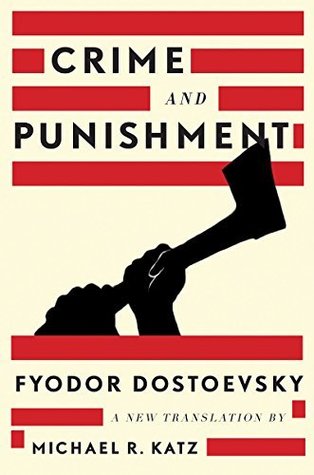I’m developing quite a love of Russian authors. This one was a deeply interesting story, though, in classic fashion, it drags on longer than I feel is necessary.
Refreshingly, the title describes the subject matter of the book quite well. It’s a novel that explores the dynamics of crime and punishment. In many ways, it’s the inverse of Victor Hugo’s tale of Jean Valjean and Javert. Dostoevsky explores the mind of the criminal, the motivation in crime, the state of suffering humanity, the impact of social ties, and the relentless hand of conscience.
It’s not a straightforward tale at all. Half of the quotes that could be drawn from the book are deeply cynical, reflecting stopping points on the way to greater understanding. In trying to understand how to commit a crime, the protagonist utters “When reason fails, the devil helps!” and he means it until he finishes unraveling the thought 100 pages later.
I’ve taken the liberty of stitching together a few quotes that roughly describes the arc of the 500 page story, in my estimation.
“Man grows used to everything, the scoundrel!” (humanity is lulled into living with misery)
“Power is given only to him who dares to stoop and take it … one must have the courage to dare.” (to change misery, one must seize power, which requires “stooping”)
“the most offensive is not their lying—one can always forgive lying—lying is a delightful thing, for it leads to truth—what is offensive is that they lie and worship their own lying…” (Is “stooping” a crime? You would think so, but I have justifications. I can’t lie to myself.)
“The whole question here is: am I a monster, or a victim myself?” (In many ways both are true, which path do I choose?)
“The man who has a conscience suffers whilst acknowledging his sin. That is his punishment.” (Choosing to take responsibility for my actions is the only way out, but it comes through pain. I cannot live a lie)
You need the rich and textured lines that Dostoevsky paints to appreciate the beauty of those dots, but maybe they can serve as a taste to motivate you to undertake it.
Verdict? It’s really worth reading,I’m not sure I know of any other book that explores the subject of agency and accountability so well; just buckle down for a long, at times tedious ride.

